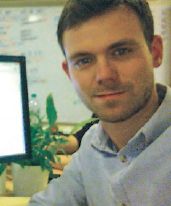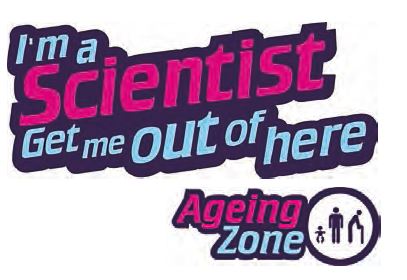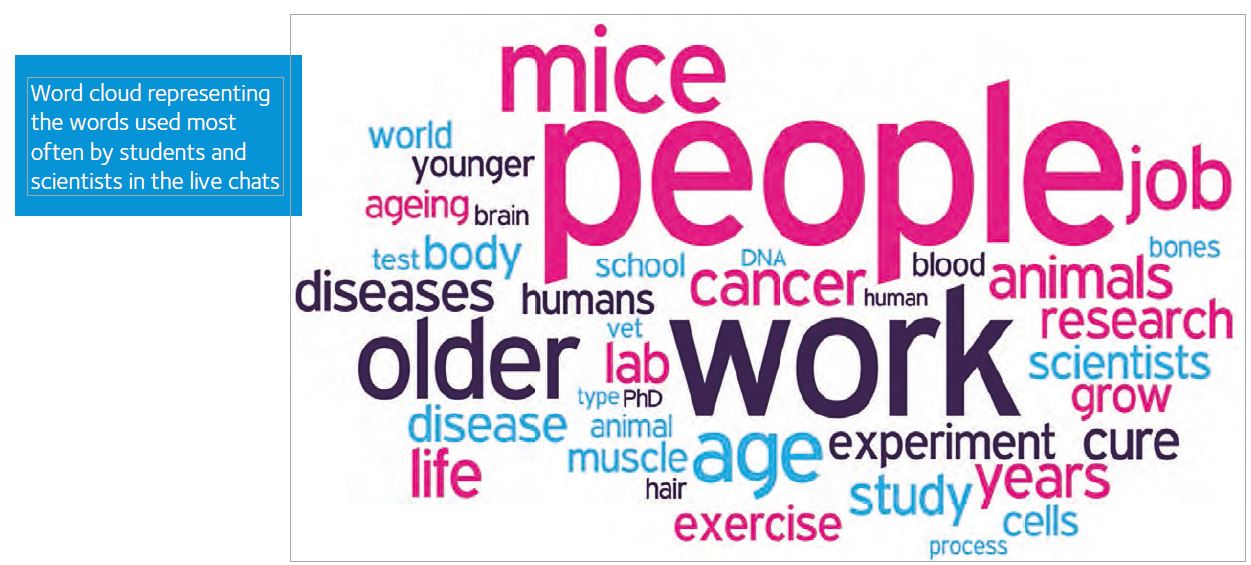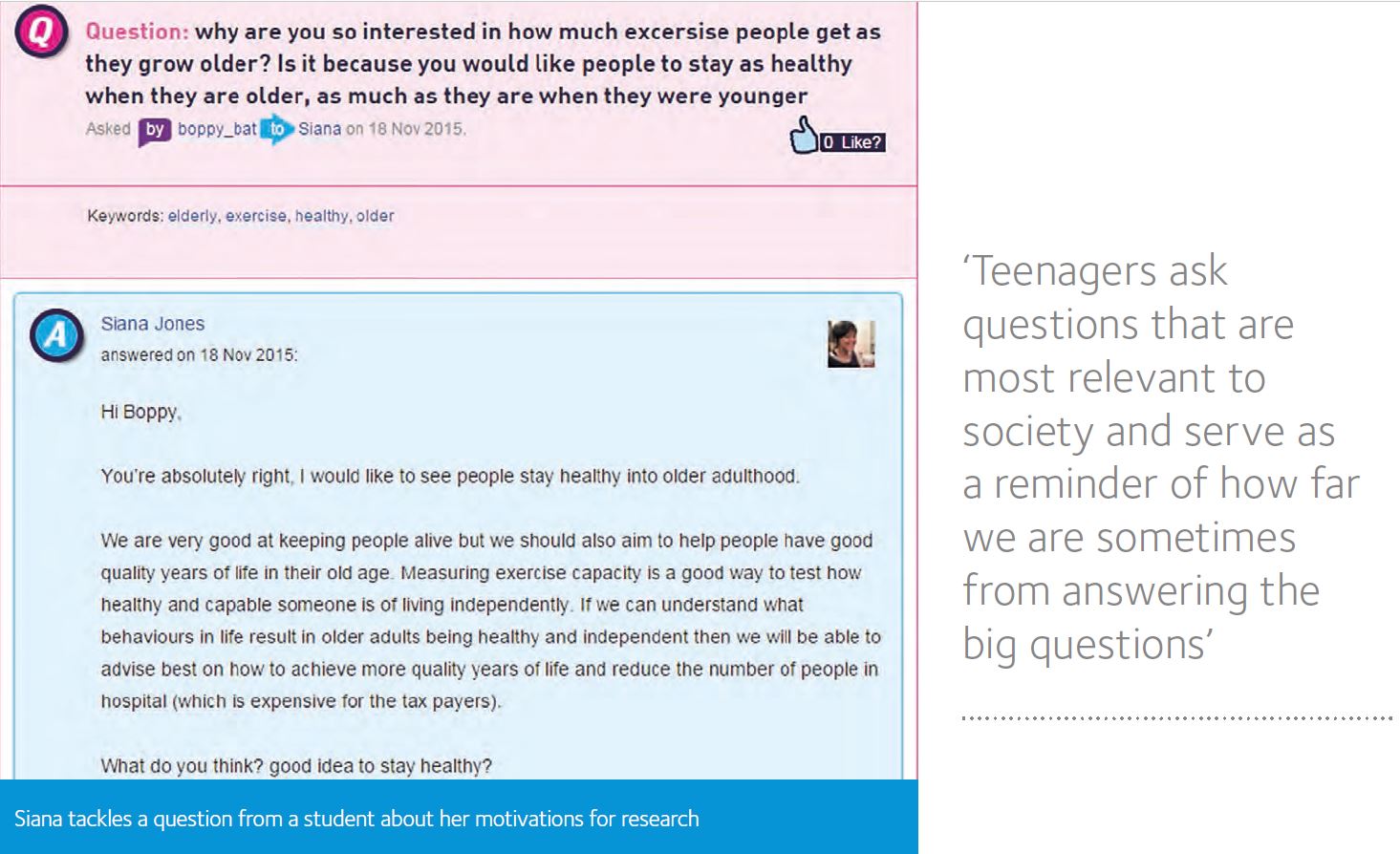
Physiology News Magazine
I’m a Scientist – Get me out of here!
News and Views
I’m a Scientist – Get me out of here!
News and Views
Antony Poveda
Gallomanor Communications Ltd, Bath, UK
https://doi.org/10.36866/pn.102.12

Researchers learn that ‘the simplest questions are the hardest’, thanks to school students from all over the country in I’m a Scientist.
In November 2015, The Physiological Society funded the Ageing Zone, a part of the online outreach competition for researchers, ‘I’m a Scientist, Get me out of here’. Siana Jones, a PhD student studying exercise and cardiac physiology at UCL, and Dr Peter Francis, Senior Lecturer in Sport, Health and Rehabilitation Science at Leeds Beckett University, took part in the zone by answering questions sent in by school students at www.imascientist.org.uk. They also talked to whole classes in text-based live chats, and competed for their votes to win £500 to fund their own outreach activities. Read on to hear about their experience of STEM engagement, web-style.
Imagine that you’re back in school and you’ve been given the chance to talk to a scientist. What would you ask them? Physiological Society members Siana and Peter found out exactly what young people today wanted to know alongside 40 other researchers in the recent November round of I’m a Scientist.
Peter and Siana put in a sterling effort in the Ageing Zone, coming 2nd and 4th respectively to the zone winner, Sara Falcone, a PhD student at MRC Harwell. Despite not winning, they both feel they gained more than a podium place from engaging with the students. ‘Personally, I had a great experience practicing how to best explain my studies in language that can be understood outside the scientific community’, says Siana. ‘It’s quite rare you get the chance to share your knowledge in a way which forces you to make your work accessible for all’ agrees Peter.
The Ageing Zone certainly had plenty of opportunities for the scientists to share their knowledge. In total, more than 430 students logged in to the zone, posting over 400 different questions to the researchers in the ASK section. Peter, Siana and the other scientists more than matched that level of engagement, providing 600 answers between them. The researchers also talked to pupils from 16 different schools scattered across the UK in the half-hour live chats. ‘The 30 minutes seem to go so quickly!’ Siana says, ‘It was a buzz when the students all thanked us at the end of each live chat’.
So what did the scientists talk about? The students wanted answers to questions on all sorts of ageing-related topics, including, ‘If you use your body physically does that have a profound effect on your ageing process?’, ‘Why do older people smell worse?’, and ‘Why do mayflies only live for one day?’. Lots of students’ questions were related to health issues, for example ‘If you had cancer, at what age would it be easier to fight it’ and ‘If I was an old lady, would an illness affect me differently to an old man?’. ‘My favourite question was ‘Why do humans live longer than animals?’’ says Peter, ‘I learned that the simplest questions are the hardest’.
The researchers were also often faced with thought-provoking questions about the life of a researcher, such as ‘Is there a downside to being a scientist?’, and students weren’t afraid to ask difficult questions on topical issues. For example, the scientists were asked for their opinions on care for elderly people with terminal illnesses, and whether being a female scientist affected their career experiences.
The feedback from students and teachers was really positive, showing how engaging directly with the researchers benefitted the student’s understanding hugely. ‘Initially when we talked about ageing our science students thought ageing was just about ‘getting old’,’ said one teacher, ‘I think you have opened their eyes to the fact that it’s much more than that!’
Siana and Peter would both recommend other Physiological Society members to give the online outreach experience a go. ‘It’s a brilliant way of getting experience communicating your ideas in a concise, clear and understandable way’ says Siana, while Peter thinks that I’m a Scientist gave him a clearer sense of the bigger picture: ‘Teenagers ask questions that are most relevant to society and serve as a reminder of how far we are sometimes from answering the big questions’.

Take a look all the big questions answered by Peter and Siana, including those mentioned here, at ageingn15.imascientist.org.uk and see more examples of great engagement in the Ageing Zone report available at about.imascientist.org.uk/category/zone-reports. ‘I wanted to show young people how fun being a scientist can be’ says Siana, ‘I hope we managed to inspire a few to take on the career!’
Want to be part of a future I’m a Scientist zone? The event runs in March, June, and November every year, and you can apply now at imascientist.org.uk/scientist-apply. It only takes 2 minutes and a one sentence description of your work. Contact antony@gallomanor.com for more information.


